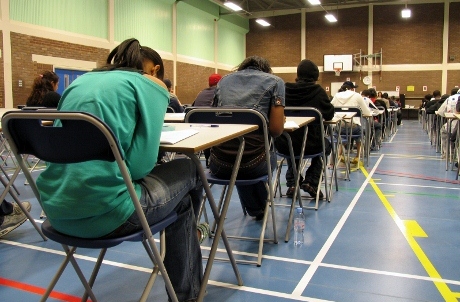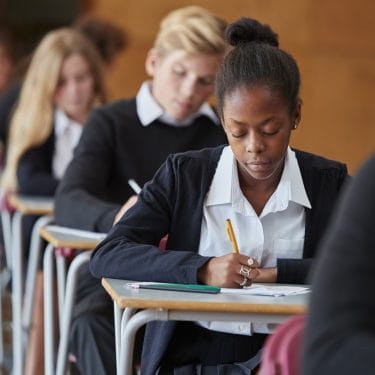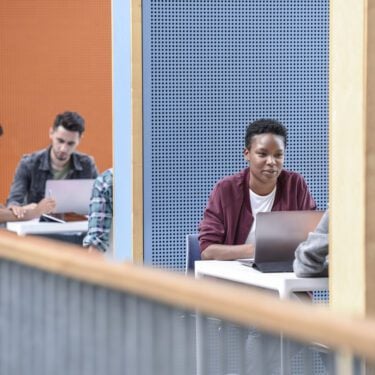
26/04/12
3 min read
New evidence shows that A-levels in a range of subjects fail to equip students with an appropriate level of mathematical skills. The amount and difficulty of mathematical content varies depending on exam board and student choice of questions.
The findings have led leading learned societies and education experts to make recommendations for the upcoming A-level reform.
SCORE (Science Community Representing Education), a collaboration of leading science organisations, publishes a new report today, Friday 27 April, which analyses the type, extent and difficulty of mathematics within the 2010 A-level examination papers for the three sciences – Biology, Chemistry and Physics.
Also published today, is the Nuffield Foundation’s analysis of the mathematical content in six other A-level subjects that require quantitative skills (Business Studies, Computing, Economics, Geography, Psychology and Sociology).
The reports consider whether the type of mathematics in the examinations was suitable for progression within the subject’s field (type), the proportion of the examination that depended on mathematical knowledge (extent), and the complexity of the mathematical questions (difficulty).

Mathematical content in Physics, Biology and Chemistry
Professor Graham Hutchings, Chair of SCORE, said, “Our findings are worrying. A significant proportion of the mathematical requirements – put in place by the examinations regulator, Ofqual, for each of the sciences – were simply not assessed and, if they were, it was often in a very limited way and at a lower level of difficulty than students will need to progress to degree level or into relevant employment.
“Mathematics enables students to understand and describe many scientific phenomena. Without learning some mathematical techniques, students are missing out on gaining a full understanding of the scientific ideas.”
The proportion of the assessments that required the use of mathematics varied between exam boards’ papers for each subject and the level of difficulty of the mathematics – judged by number of steps in a calculation, the complexity of the question and the familiarity of the context – also varied.
Professor Hutchings continues, “A framework must be developed to regulate the way mathematics is assessed within science A-levels to ensure parity across exam boards. We would also like to see a review of the current mathematical requirements for each of the sciences at A-level to ensure the inclusion of underpinning areas of mathematics within that science.
“These reports identify the important role professional bodies can play in A-level design. As independent organisations, capable of bringing together teachers, academics and representatives from industry, the professional bodies are perfectly placed to ensure A-levels are fit for purpose and could provide the basis of a National Subject Committee for the development of A-level qualifications.”
Mathematical content in Business Studies, Computing, Economics, Geography, Psychology and Sociology
The disparity in mathematical content across exam boards was even greater in the A level assessments in the Nuffield Foundation study. For Psychology, for example, one exam board required students to use mathematics in exam questions worth just 10% of available marks, but, for another, this figure was over 40%. This is despite psychology having mathematical requirements set by Ofqual in its subject criteria, akin to the three sciences.
The amount of mathematics required to earn a particular grade is also affected by which units of study the school or student chooses, and by which questions students choose to answer in exams. For example, two students studying Business Studies could get the same grade, with one using no mathematics at all, and another gaining almost 50% of their mark from exam questions that require mathematical work.
The report concludes that with the exception of Computing, the variation in mathematical content is so great that the qualifications do not give universities or employers a meaningful indication of the level of mathematical skill or understanding of students who have them.
Anthony Tomei, Director of the Nuffield Foundation, said, “It is a common complaint from higher education that students come unprepared for the quantitative demands of their subjects, so the question of what mathematics should be required in A level teaching is important.
“These findings are timely given the current review of A-level content. Subject communities and universities should take the opportunity to agree the appropriate mathematical content of their subjects and to work with exam boards and Ofqual on the best way to assess mathematical skills in a consistent manner.”
About the research
Research for both reports was undertaken by subject expert groups – comprising practising A-level teachers, teachers with experience in curriculum research and individuals working for exam boards as markers. For the SCORE study, an online survey was undertaken to ask stakeholders in subject communities whether they felt the mathematical content of the examinations was appropriate for progression.
The research was undertaken in response to evidence that two-thirds of undergraduates do not have the necessary mathematical skills for their course (ACME, Mathematical Needs, 2011).
ENDS
For further information contact the Foundation’s Communications Manager, Frances Bright, on 020 7681 9586/07581 216981 or email fbright@nuffieldfoundation.org























































